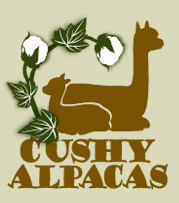Animal Movement. Be sure all testing, vaccinations, and dewormings are up-to-date. Quarantine alpacas coming on to or returning to your farm. Quarantine herdsires used for drive-by breedings. Keep pregnant females as far away as possible from quarantine areas.
People Movement. Limit and monitor traffic of incoming people, products, and vehicles. Keep a log of visitors — what other farms/animals have they visited.
Wear clean clothes and footwear before coming in contact with alpacas. Provide foot baths with long handled brushes, footwear covers, or coveralls. Require use by everyone and anyone.
Wash hands before and after coming in contact with alpacas. Provide waterless hand sanitizers or hand wipes. Require use by everyone and anyone.
Complete quarantine chores last.
Environment. Provide good nutrition and fresh water. Keep doors and gates locked. Disinfect all equipment that comes in contact with alpacas. Avoid stressing your alpacas. Have regular health days. Know your alpacas.
Shows/Events. Don’t use communal dung piles. Don’t walk alpacas in areas used by other species. Provide as much distance as possible between stalls of alpacas from different farms. Stall areas should not be left unattended. Keep isles and stalls clean. Avoid direct contact with other alpacas or humans. Don’t encourage the public to feed your alpacas. Anyone entering your alpaca stalls should wash their hands and clean and disinfect their footwear. Disinfect all equipment upon returning home-don’t forget your vehicle and trailer (tires and all).
